Evo Morales, currently exiled but as busy as ever in Buenos Aires, says he will return to Bolivia when legal proceedings against him are dropped.
Bolivia’s president from 2006 until last November stuck to his guns in an exclusive interview with Perfil journalist Leandro Dario this week, insisting that his exit last spring was the result of a coup d’état engineered by the Bolivian right in collusion with the United States.
He told Perfil that he would return to his country once the legal proceedings against him are halted since his case does not call for an ordinary trial, asking instead for a “trial of presidential responsibility” and pointing out that the 30 deaths from political violence all came after the opposition “coup,” despite the terrorism and sedition charges lodged against him.
No idle exile for Evo Morales. although he still finds time for some weekend football (as in his presidential days). An early riser (5am daily) he works around the clock hoping to guide his Movement Toward Socialism (Movimiento al Socialismo, MAS) party to victory in the presidential elections called for May 3. Perhaps the most important elections of his life will be at stake.
“The presidential and vice-presidential candidates must guarantee the urban and hardcore MAS votes” with a combination of youth and experience, he said in the interview without giving away his choice of heir (decision due on January 19). The names include a trio from his Cabinet – former foreign ministers David Choquehuanca and Diego Pary and former Economy minister Luis Arce, an architect of the “Bolivian miracle” – but Andrónico Rodríguez, 30, a leader of the coca farmers, is the clear frontrunner in the opinion polls, according to Morales.
Asked what role he would be playing in the succession, the ex-president said he would be consulting the MAS grassroots but also the polls. Rather less modestly he added: “It’s not easy [campaigning so far from home] but I have the confidence that the Bolivian people chose me to be their campaign chief knowing that I’m a refugee in Argentina.”
And his role should MAS win? “Whatever the social groups assign me. For now I have no idea,” he answered.
He then named the three top priorities of a future MAS government as job creation, economic growth and reconciliation.
Asked if he expected the May elections to be clean and transparent, he implied that they could not be without his return to Bolivia, saying that “they must stop persecuting the opposition with safe conducts so that there are no more exiles and refugees in the world ... otherwise there will be elections but without democracy.”





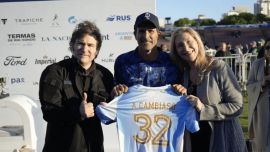








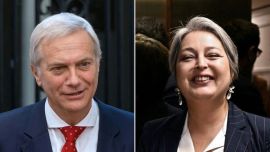
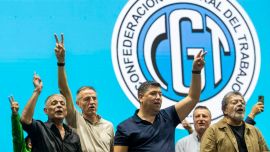

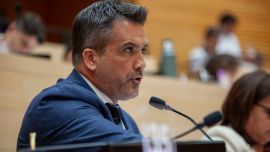
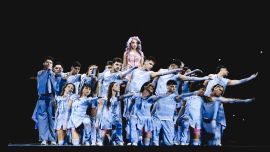
Comments